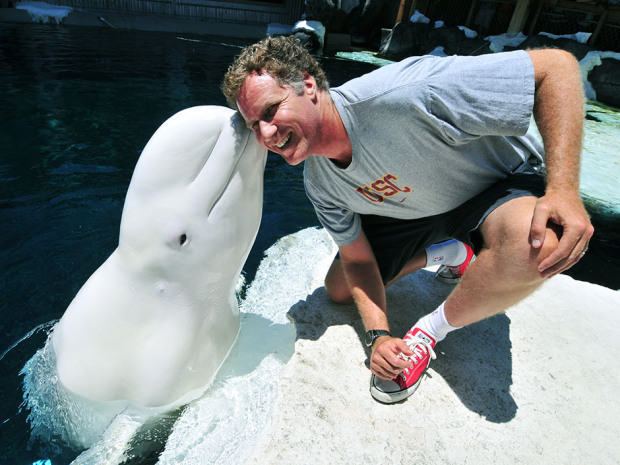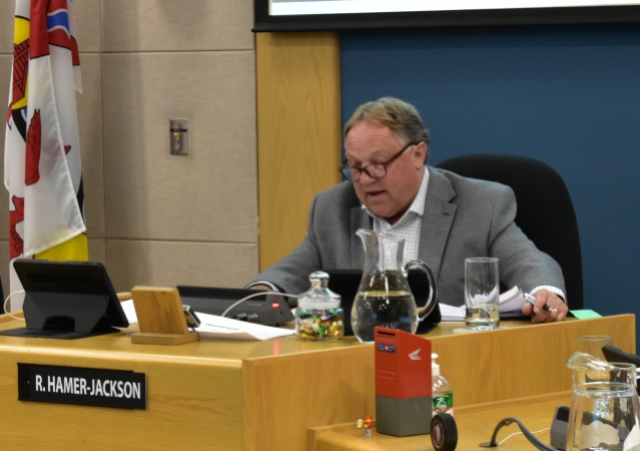
Death of Vancouver Aquarium beluga in Orlando SeaWorld renews breeding debate
VANCOUVER – The death of a beluga whale loaned by the Vancouver Aquarium to Orlando SeaWorld for breeding purposes is renewing the debate over whether cetaceans should be bred in captivity.
SeaWorld officials said Nanuq died Thursday at the estimated age of 31 or 32. While the cause of death is not yet known, he had been undergoing treatment for an infection caused by a broken jaw that occurred in an encounter with other animals.
"The conversation has obviously been brought back to the table," said Vancouver Park Board commissioner Michael Wiebe.
"Nanuq was someone who I used to see as a kid, because I was a Vancouver Aquarium member. It's important, and so we will look at how it was being treated and what the practices are and what we could do to make it better."
He said the board expects to begin discussions next week with the aquarium, with a decision on the bylaw surrounding the keeping of cetaceans in captivity expected later this year.
The board voted in November against ending the program allowing the cetacean population to multiply naturally at the popular tourist attraction, instead deciding to hold more consultations.
Vancouver Aquarium is currently undergoing a $100 million expansion that will include the installation of new, larger whale tanks. The aquarium has said it does not have an active breeding program, but that copulation between whales occurs at times.
The aquarium now owns eight belugas, four of which remain in U.S. SeaWorlds. Two are in Georgia Aquarium, and the other two, Aurora and Qila, who is Nanuq's daughter, live in Vancouver's aquarium.
Nanuq was transferred to Orlando SeaWorld in 1997 and moved several times to breed at other facilities. The beluga was a popular attraction for SeaWorld, with celebrities including Will Ferrell posing for photos with the large whale.

Vancouver Aquarium declined an interview, but sent a statement that said the aquarium works closely with other accredited aquariums to manage the genetic diversity of belugas in human care.
"Under a co-operative philosophy, each facility manages its own animals and each provides exceptional care," the statement said.
Kathleen Dezio, executive director of the Alliance of Marine Mammal Parks and Aquariums, an association of which the Vancouver Aquarium is a member, said Nanuq's death was an "unfortunate accident."
She said in a statement that accredited aquariums are rigorously inspected every five years. Animals that might be sent on loan are carefully evaluated for temperament and suitability for blending into the new population, she said.
Animal Welfare Institute marine mammal scientist Naomi Rose said whales suffer extreme stress when they are moved between aquariums, as their bodies react as though they have been stranded when they are taken out of water.
Rose, a long-time SeaWorld critic, said it's unlikely a beluga would suffer a broken jaw in the wild, as the whale would have had the space to flee from an aggressor.
"It's not a common injury and yet it happens in captivity because they just can't get away from each other," she said.
A post-mortem examination is scheduled, but results are not expected for six to eight weeks. Orlando SeaWorld did not respond to requests for comment.
Sarah Blyth, a former parks board commissioner who supported a ban on captive breeding, said she hopes Nanuq's death leads the aquarium to seriously consider the issue.
"It's the right time to have this conversation now," she said. "What do we want as a city? I think the aquarium has to come to the conclusion that times are changing and embrace that."
Join the Conversation!
Want to share your thoughts, add context, or connect with others in your community? Create a free account to comment on stories, ask questions, and join meaningful discussions on our new site.
2 responses
-

You answered your own question when your statement started with “Animal Welfare Institute”; regardless of any facts or care taken; she is against zoos & ocean parks altogether; this changes her view from a scientific standpoint to an agenda based political one.
-

Why would you chance this move when Animal Welfare Institute marine mammal scientist Naomi Rose said whales suffer extreme stress when they are moved between aquariums, as their bodies react as though they have been stranded when they are taken out of water. How stupid can you be? Close your doors as obviously no animal or mammal means anything to you! Truly pathetic , disgusting , deplorable and Inhuman.




















Leave a Reply
You must be logged in to post a comment.